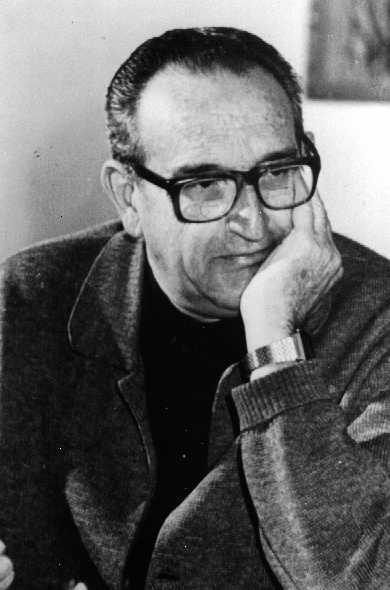Bishop Juan José Gerardi was battered to death on 26 April 1998, just two days after he had presided over the public presentation of the Guatemalan Church’s in depth study of Guatemala’s armed conflict (1960-1996). As coordinator of the Office for Human Rights of the Archbishopric of Guatemala (Oficina de Derechos Humanos del Arzobispado de Guatemala, ODHAG), he had been the moving force behind the Recuperation of the Historical Memory project (Recuperación de la memoria histórica, REMHI). Based on the study of more than 55,000 human rights violations suffered over the 36 years that the civil war ebbed and flowed, the report had found the army and its civilian auxiliaries, the civil patrols, were responsible for the vast majority of the abuses.
Ordained as priest in 1946, he worked in several parishes throughout Guatemala, until he was made bishop of the Verapaz diocesis in 1967 and then bishop of the Santa Cruz del Quiché diocesis in 1974. As violence against civilians intensified, Bishop Juan Gerardi often spoke out against the human rights violations against civilians, in particular against indigenous people and people within the Church. In 1980 he had to leave his diocesis after a planned attempt on his life was foiled. After a trip abroad he was temporarily detained on his return to Guatemala and was then forced to go in exile until 1982. In 1984 he was appointed Auxiliary Bishop of the Archbishopric of Guatemala, where he continued with his efforts for human rights and peace. In 1988 Mons. Gerardi was also appointed to serve on the National Reconciliation Commission established by the government. This later led to the creation of ODHAG, which continues to this day to provide assistance to victims of human rights violations. In 1995, ODHAG started a project to collect testimonies of abuses in Guatemala. This was the first opportunity for survivors and families of victims of human rights violations to share their experiences and denounce what happened during the conflict. This led to the elaboration of the report Guatemala: Nunca más, presented on 24 April 1998. Two days later Mons. Juan Gerardi was killed. For years he had endured criticism, stigmatisation and threats for his work in favour of peace, human rights and the poorest in society.
On 8 June 2001, three army officers were sentenced to 30 years in prison for the killing. One priest, identified as an accomplice, was sentenced to 20 years. In successive appeal trials some of the sentences were reduced. Higher-up military alleged to be involved in the killing have not been prosecuted. The cost of that one successful prosecution has been high: a judge and a prosecutor had to flee the country after receiving threats. Dozens of others involved in the case have reported serious intimidation and threats, including lawyers with ODHAG. Three witnesses paid with their lives as did six people who were sleeping outdoors near Bishop Gerardi’s home the night he was killed.


